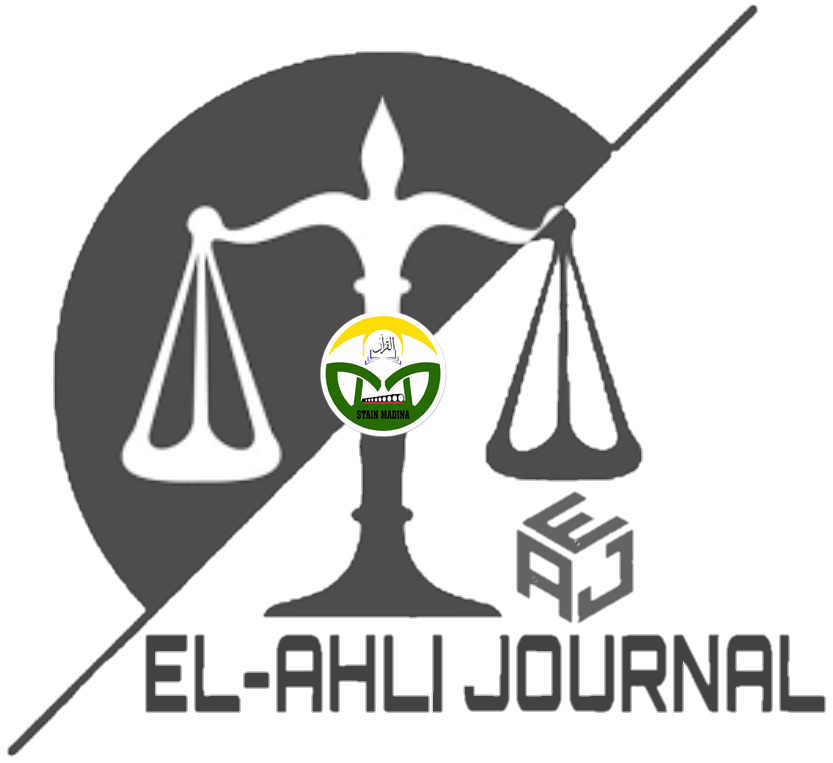KEHUJAHAN HUKUM NEGARA SEBAGAI SUMBER HUKUM ISLAM (STUDI KASUS LEGALITAS KOMPILASI HUKUM ISLAM DI INDONESIA )
DOI:
https://doi.org/10.56874/el-ahli.v2i1.476Kata Kunci:
kehujahan, Hukum Negara, hukum Islam, Kompilasi Hukum IslamAbstrak
The formulation of the problem in this study is how is the violation of state law as a source of Islamic law and whether the Compilation of Islamic Law has fulfilled the requirements to become state law
This research was conducted through a qualitative research library (library research) and comparative analysis. While the method used to analyze the data is induction and deduction which are then compared, to draw conclusions as answers to the problems that have been formulated.
The author finds the fact that in establishing shari'a law' in classical times, many local ijmak practices were found, namely the stipulation of syar'i law was agreed upon and carried out by only a few mujtahids and only covered one particular area. Looking at the facts and conditions of Muslims who adhere to the "national state", the majority of contemporary Ulama accept the blasphemy of State Law as a source of Islamic law with two conditions, namely: first, the State Law embodies the value of justice, and the benefit for all and the measure of the benefit must be in line with the values ??of the state. The value of divine revelation, namely the Qur'an and Hadith. Second, the formation of a state law is carried out by means of deliberation using official state institutions in which the ulama and umara' are incorporated who have in-depth knowledge in their fields.
Looking at the history of the formulation of the Compilation of Islamic Law, the author assesses that the legality of KHI has met the requirements of local ijmak as a form of fusion between ijmak and taqnin (State Law) as one of the legal arguments of Islamic law in Indonesia.
Unduhan
Diterbitkan
Cara Mengutip
Terbitan
Bagian
Lisensi
All articles published in EL-AHLI: Jurnal Hukum Keluarga Islam are licensed under a Creative Commons Attribution-ShareAlike 4.0 International License (CC BY-SA 4.0).
Under this license, authors and readers are free to:
-
Share — copy and redistribute the material in any medium or format.
-
Adapt — remix, transform, and build upon the material for any purpose, even commercially.
Under the following terms:
-
Attribution — You must give appropriate credit, provide a link to the license, and indicate if changes were made. You may do so in any reasonable manner but not in any way that suggests the licensor endorses you or your use.
-
ShareAlike — If you remix, transform, or build upon the material, you must distribute your contributions under the same license as the original.
Copyright and Licensing Policy:
-
The author retains copyright and grants the journal the right of first publication with the work simultaneously licensed under the Creative Commons Attribution-ShareAlike 4.0 International License, which allows others to share the work with acknowledgment of the work’s authorship and initial publication in this journal.
-
Authors are allowed to enter into separate, additional contractual arrangements for the non-exclusive distribution of the journal's published version of the work (e.g., post it to an institutional repository or publish it in a book), with an acknowledgment of its initial publication in this journal.
Link to License:
https://creativecommons.org/licenses/by-sa/4.0/





